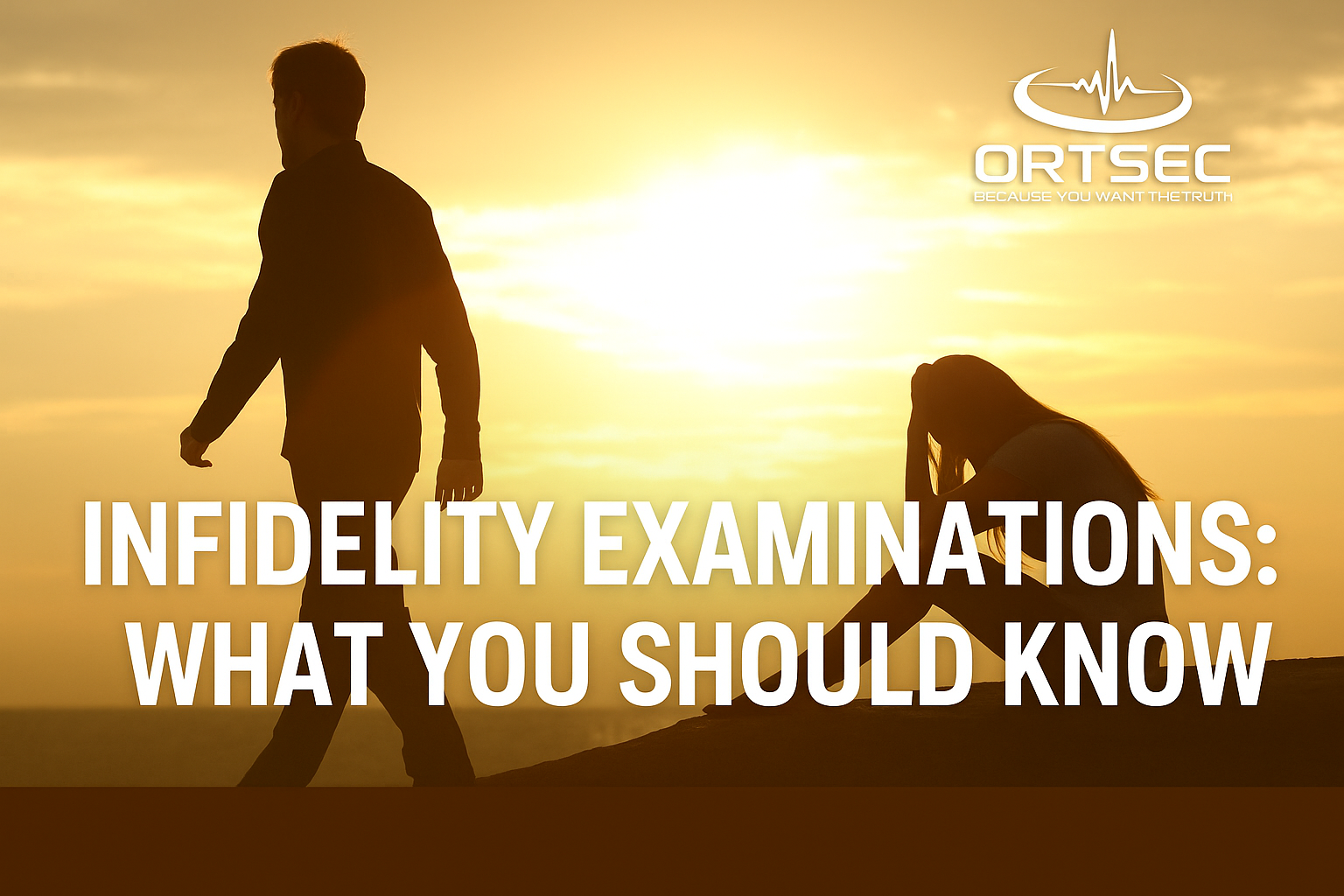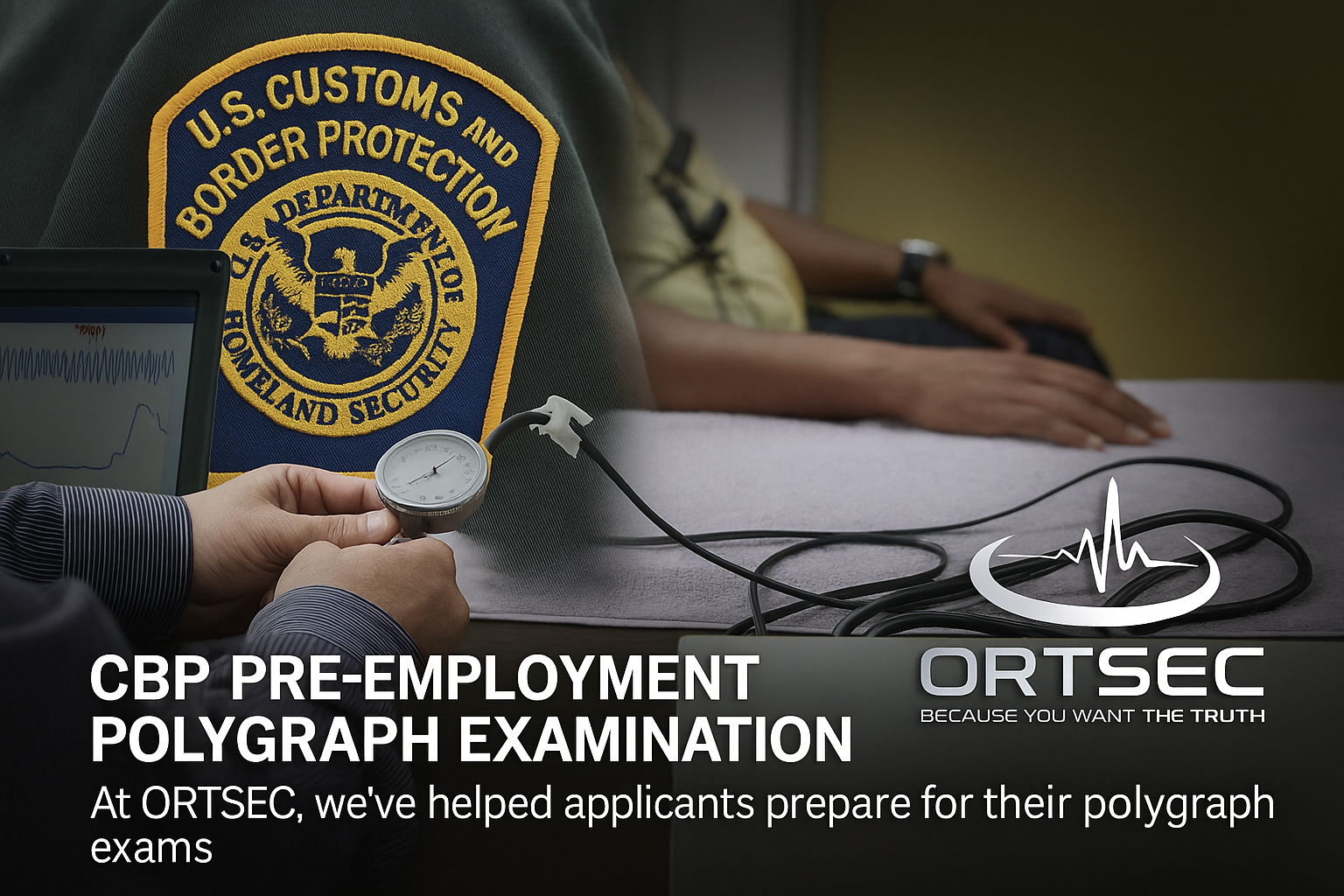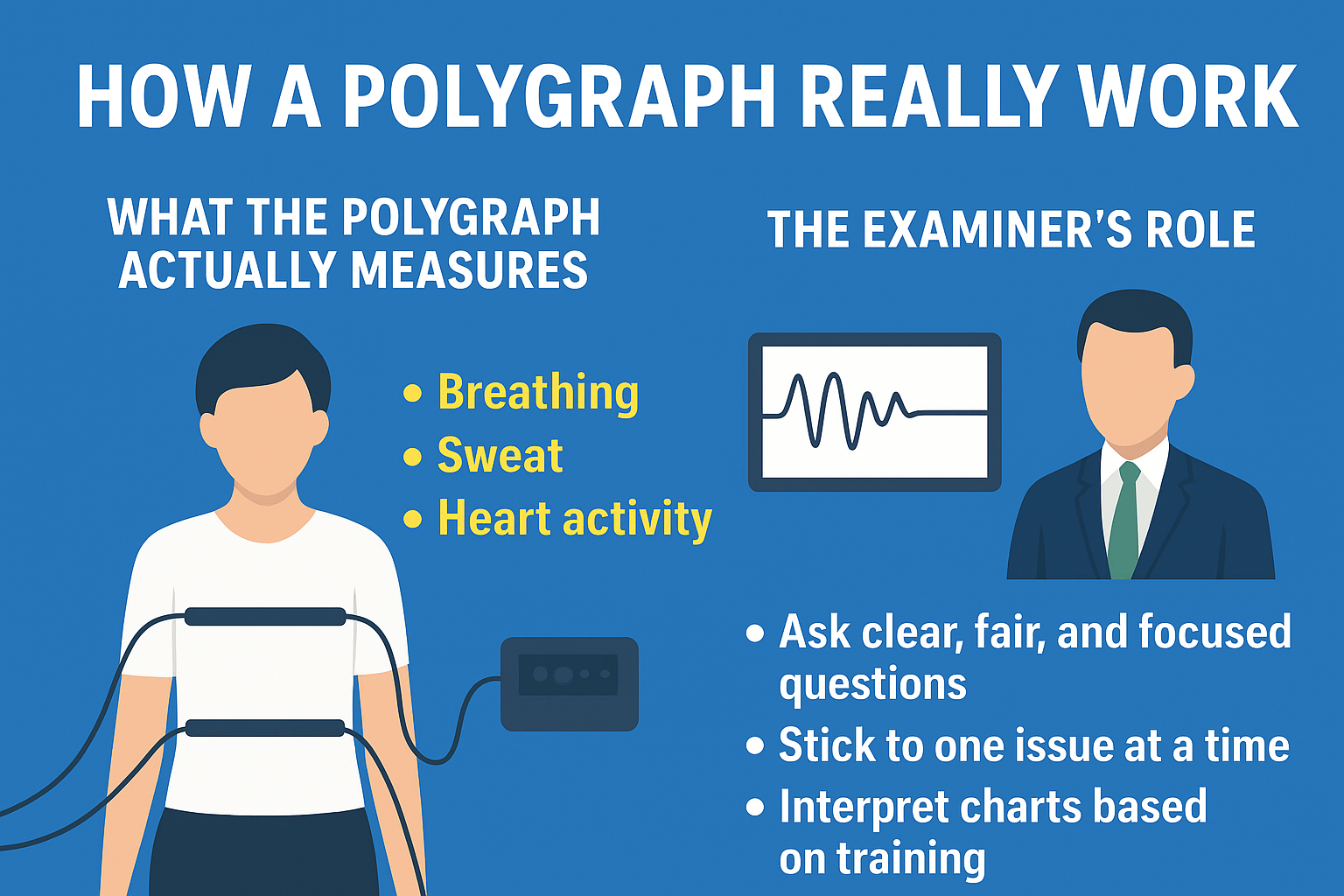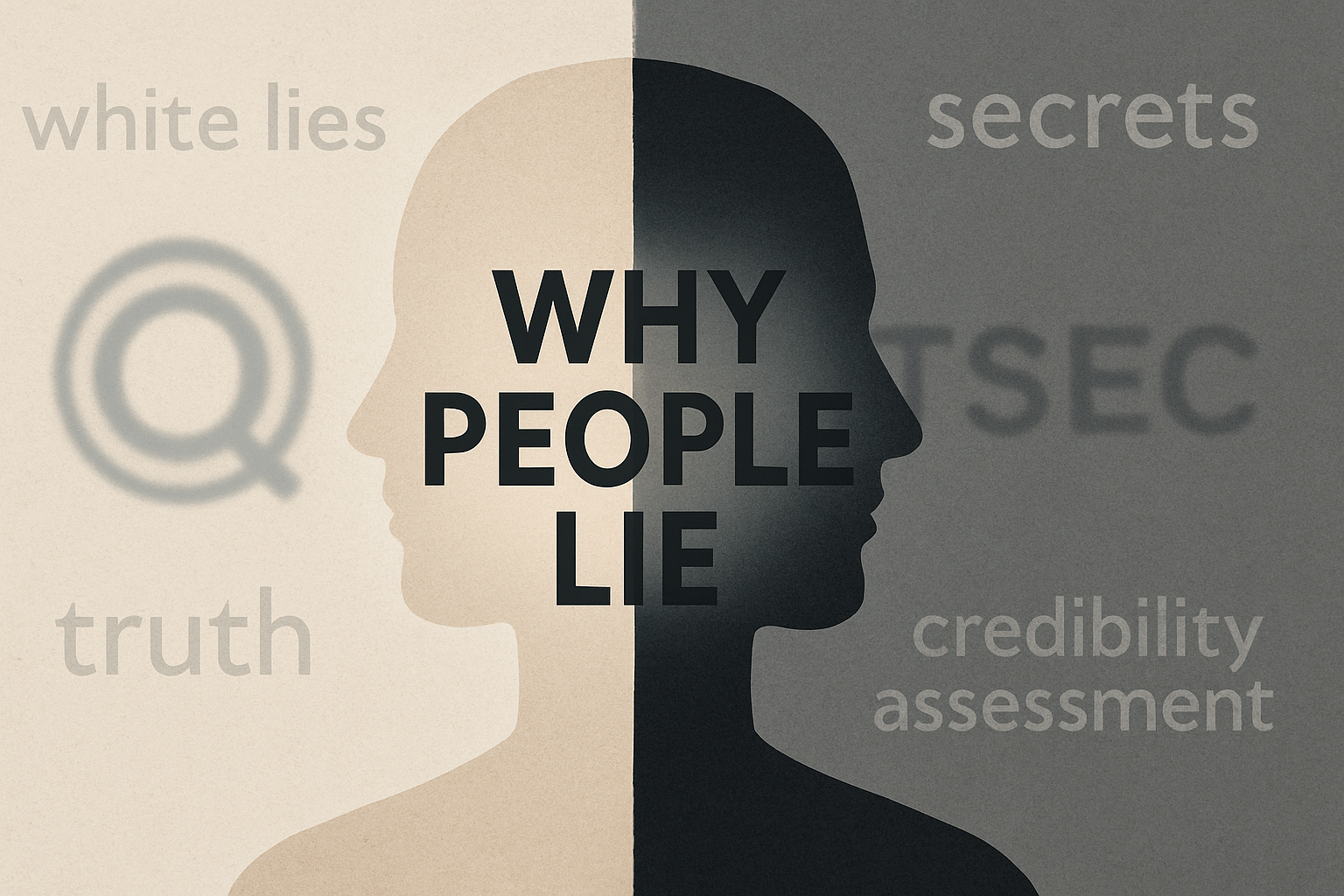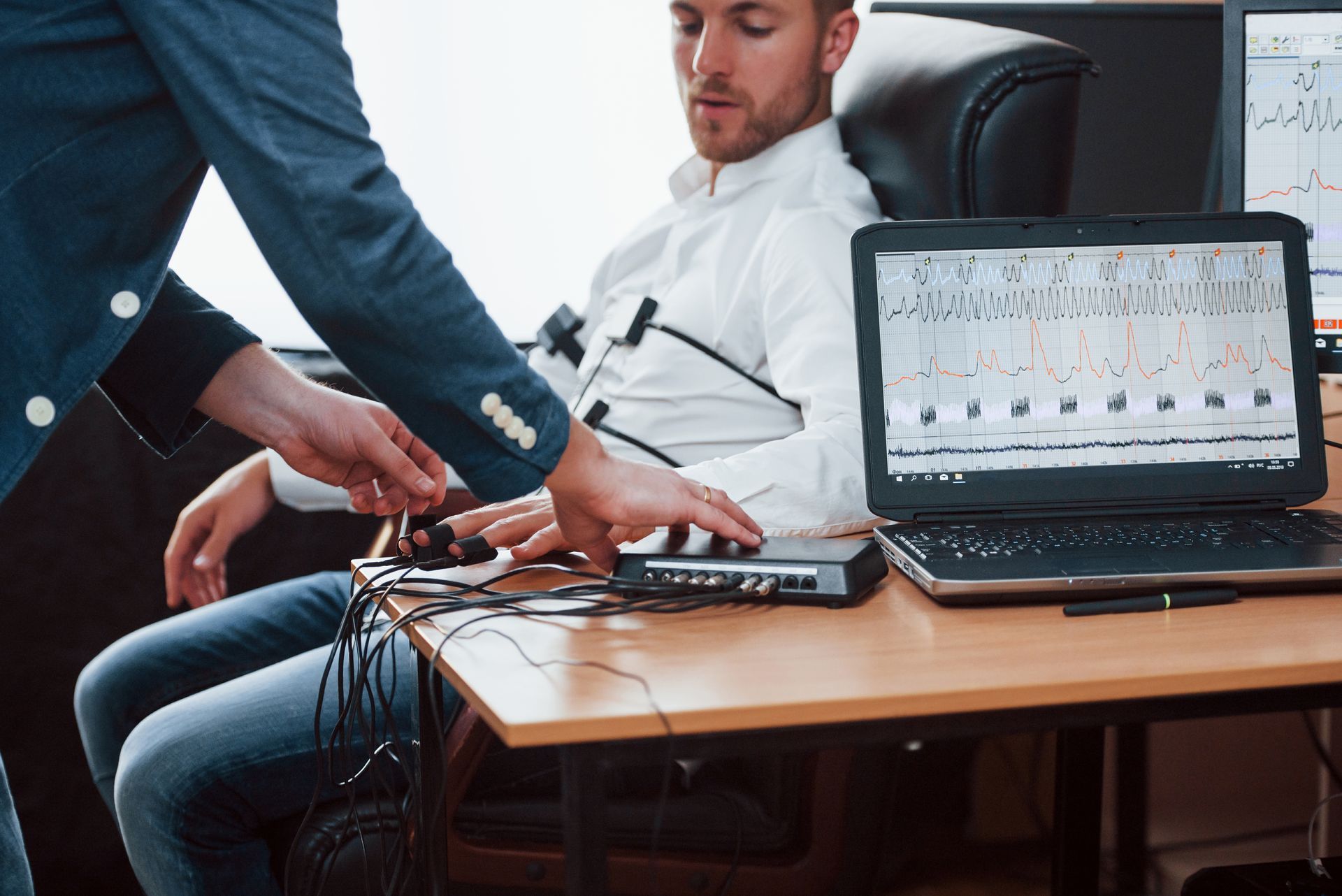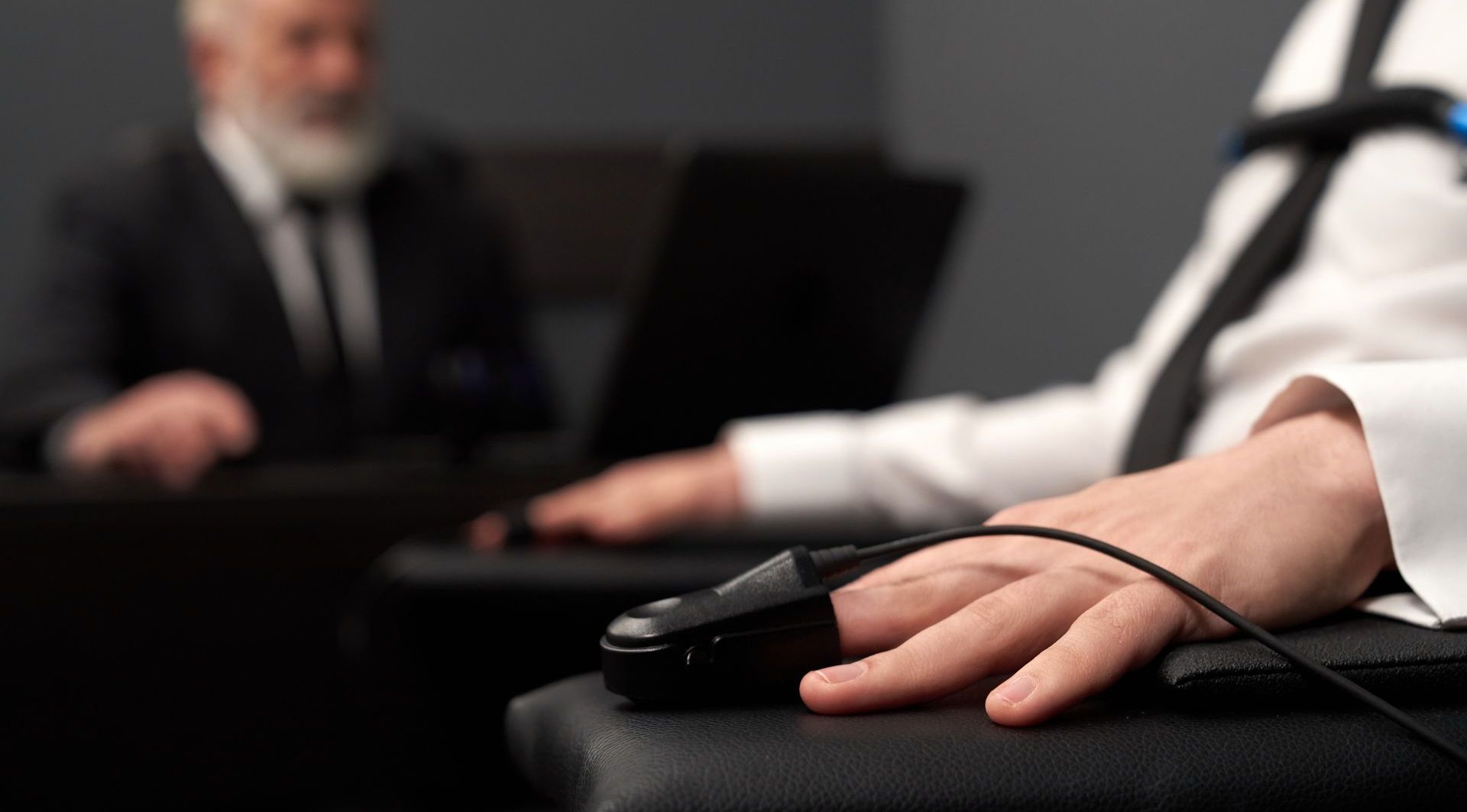Nervousness and the Polygraph Exam: What You Should Know
Nervousness and the Polygraph Exam: What You Should Know
If you’ve been scheduled for a polygraph examination, chances are you’re feeling nervous. That’s completely normal. In fact, nearly every person who walks into a polygraph suite feels some degree of anxiety. The good news is that nervousness itself does not affect the results of a properly conducted polygraph examination.
The polygraph isn’t measuring whether you’re calm or anxious. It measures changes in your body’s physiology, things like breathing, heart rate, and sweat gland activity, in response to specific, structured questions. Those responses are evaluated in context, and examiners are trained to distinguish between natural nervousness and reactions that are significant.
So, what can you do to prepare?
Reach out to your examiner.
If possible, contact the assigned examiner ahead of time. A professional examiner will welcome your questions and address your concerns. That conversation often puts people at ease before the first wire is even attached.
Avoid internet “research.”
A quick search for “polygraph tips” will lead you into a rabbit hole of myths, tricks, and flat-out misinformation. Not only will it confuse you, but it can actually increase your anxiety. The best source of information is the examiner who will be conducting your test.
Be rested and honest.
A good night’s sleep, eating normally, and arriving on time will all help you feel more comfortable. Remember, the polygraph works best when you simply tell the truth.
Expect a conversation.
Many people are surprised to learn that the majority of the exam is not spent answering questions under wires, but in conversation during the pre-test phase. That’s when the examiner explains the process and makes sure you understand the questions before the test begins.
The bottom line: Being nervous is not a problem. In fact, if you weren’t a little nervous, that would be unusual. What matters is that you approach the exam openly, communicate with your examiner, and avoid the trap of online myths.
When you understand the process and know what to expect, nervousness becomes manageable, and the truth has a clear path forward.


